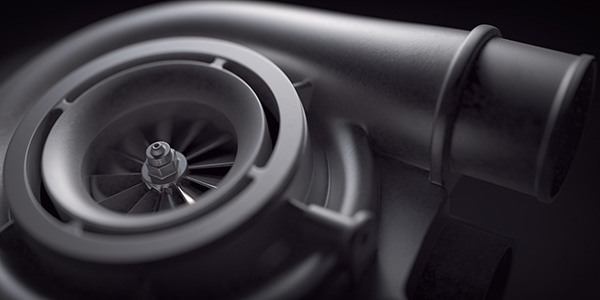
Open the hood of most modern European cars and you’ll likely find a turbocharger. Whether it's a compact hatchback or a luxury sedan, the trend is clear. European automakers have embraced turbocharging as a way to meet fuel efficiency and emissions goals while still offering strong performance.
But how do turbos actually work? And why have they become the standard for so many European vehicles?
What a Turbocharger Actually Does
A turbocharger uses the engine’s exhaust gases to spin a turbine. That turbine powers a compressor, which forces more air into the engine's cylinders. More air means more oxygen, which allows the engine to burn more fuel and produce more power. It’s a clever way to boost engine output without increasing engine size. Instead of using a larger, heavier engine, a smaller turbocharged engine can deliver similar or even better performance.
Turbochargers are especially helpful when the driver asks for more power, like during acceleration or passing. When boost kicks in, the car feels more responsive without needing to downshift aggressively.
Why Turbocharging Has Gained Popularity in Europe
European regulations on emissions and fuel economy have been a driving force behind the widespread use of turbocharged engines. Smaller engines produce fewer emissions and typically get better mileage, but they often lack the power drivers expect. Turbocharging solves that problem. Automakers can use smaller displacement engines and still meet customer expectations for performance.
There's also a practical benefit for driving in European cities, where narrow streets and tight parking spaces make smaller cars more appealing. A turbocharged 1.4-liter engine, for example, fits easily into a small vehicle but delivers the punch of something much larger when needed.
Why Modern European Engines Rely on Turbos for Efficiency
It’s not just about power. Turbochargers help engines operate more efficiently by improving combustion. With more air forced into the cylinder, fuel burns more completely. This allows engineers to reduce the number of cylinders without sacrificing performance. A four-cylinder turbo engine can easily match the power of a traditional six-cylinder while using less fuel.
Turbo engines also pair well with automatic start-stop systems and hybrid technology. Their compact size leaves more room in the engine bay for batteries and cooling systems. And when programmed properly, a turbocharged engine can deliver strong low-end torque, making the car feel quick in city driving without needing to spin the engine at high RPM.
Common Issues Turbocharged Engines Can Face
While turbos offer clear benefits, they do add complexity. Components like the turbo itself, intercoolers, wastegates, and boost sensors must all function correctly. Some common problems include:
- Boost leaks caused by cracked hoses or loose clamps
- Turbo lag if the system isn’t delivering pressure quickly
- Carbon buildup in direct injection engines, especially if driven mostly on short trips
- Oil starvation occurs if maintenance is skipped or the wrong oil is used
Proper maintenance becomes more important with a turbocharged engine. Regular oil changes, clean air filters, and a healthy cooling system all help the turbo last longer.
Driving Habits That Help Turbos Last Longer
Letting the engine warm up before hard acceleration gives the turbo time to build proper oil pressure. After long highway drives or heavy towing, idling the engine for a minute before shutting it off helps prevent oil from coking in the turbo bearings. Avoiding wide-open throttle until the engine is fully warmed up also protects the internal components.
It’s also smart to stay on top of service intervals. Turbocharged engines often have tighter tolerances and run hotter than naturally aspirated ones, which means fluids and filters need to be kept in top shape. Waiting too long between oil changes can lead to buildup and restricted oil flow to the turbo shaft.
European Auto Repair in Arlington That Knows Turbocharged Engines
If you own a European vehicle, chances are it has a turbo under the hood. Whether you’re noticing a drop in performance, strange noises under acceleration, or a check engine light related to boost pressure, those are all signs worth checking. Having someone familiar with the specific needs of turbocharged systems can save you time and prevent unnecessary repairs.
Trust Euro Car Tech in Arlington, TX, for Turbo System Repairs and Service
At Euro Car Tech, we specialize in European vehicles and understand the demands of turbocharged engines. Whether you need routine maintenance, turbo diagnostics, or help tracking down a performance issue, we’re here to help.
Schedule a visit today and keep your engine performing the way it was built to.